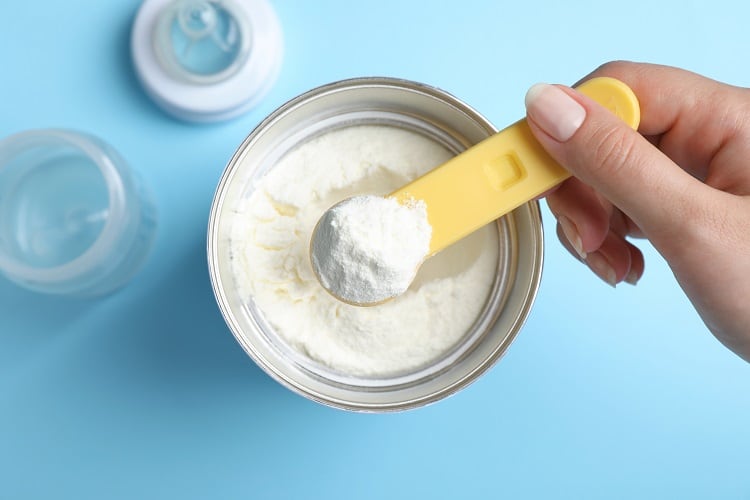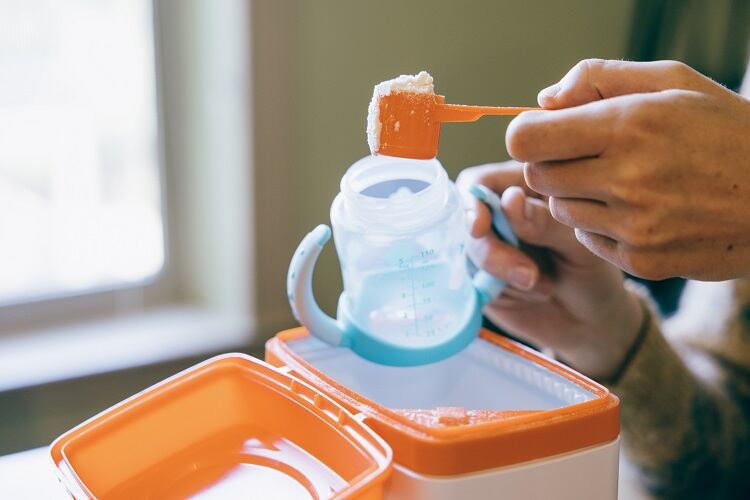It is widely acknowledged that ‘breast is best’. In both high- and low-income settings, breastfeeding has proven health benefits for both mothers and babies. And yet, less than 50% of babies worldwide are breastfed according to World Health Organization (WHO) recommendations.
Earlier this year, The Lancet published a three-paper series on breastfeeding. The papers accused infant formula manufacturers of irresponsible marketing and political lobbying for their own benefit, rather than that of parent and child.
But trade associations representing these manufacturers are fighting back.
According to the secretary generals of International Special Dietary Foods Industries (ISDI) and Specialised Nutrition Europe (SNE) – which represent members of the special dietary food sector and specialised nutrition (including infant formula makers) respectively – the papers create the impression that advertising is the main factor limiting breastfeeding and that any communication should be globally banned.
“We believe this to be misleading,” noted ISDI’s Jean-Christophe Kremer and SNE’s Beat Späth.
The Lancet Breastfeeding Series 2023
The papers, co-authored by WHO professor Nigel Rollins, contend that commercial milk formula marketing contributes to reduced global breastfeeding practices by seeking to influence normative beliefs, values, and political and business approaches to establish environments that favour uptake and sales of infant formula.
As sales of commercial infant formula approach $55bn (€50bn) annually, the paper authors stress more infants and young children are fed ultra-processed formula milks ‘than ever before’.
The papers argues that infant formula marketing ‘oversimplifies’ parenting challenges, and manipulates and exploits emotions, aspirations, and scientific information with the aim of reshaping individual, societal, and medical norms and values.
Infant formula manufacturers continue to ‘knowingly and regularly’ violate the International Code of Marketing of Breast-milk Substitutes and subsequent resolutions, believe the papers’ authors, who conclude that marketing of commercial milk formula should be banned.
The International Code of Marketing of Breast-milk Substitutes was developed by the World Health Assembly back in 1981 following investigations into Nestlé’s marketing of formula milk in the Global South in the 1970s, where the food major was accused of causing infant illness and death in poor communities by promoting their infant formula products.
“A framework convention, placing the rights of children and women at its heart, is needed to protect parents and communities form the commercial marketing of food products for and to children younger than three years old, including commercial milk formula marketing systems.
“The framework would restrict marketing but not the sale of these products.”
So how should breastfeeding rates be improved?
But according to the infant formula industry, commercial marketing is not solely to blame for low breastfeeding statistics. ISDI and SNE contend that an integrated approach is required to increase breastfeeding rates.
The trade associations back up their view by pointing to Europe, made up of countries sharing similar legislation, companies, products, and advertising, yet which have varying breastfeeding rates. The difference, according to ISDI and SNE lies in socioeconomic and cultural factors at the national level.
In Scandinavia, for example, lengthy, full-paid maternity leave, public support and a culture conductive to breastfeeding all play a role in contributing to some of the highest breastfeeding rates in the world, noted ISDI secretary general Kremer and SNE secretary general Späth in correspondence published this week in The Lancet.
“In emerging economies, the decline of breastfeeding in people with middle income can also be explained by increasing numbers of both parents working and environmental, socioeconomic, and cultural factors at play.”
Ultimately, the trade bodies believe a ‘holistic’ approach is required – one which includes strengthening maternity leave, workplace policies, and funding. It also requires ‘transparent, science-based’ interactions with healthcare professionals.
“An all-inclusive supportive ecosystem involving multiple stakeholders is required to encourage breastfeeding and to improve nutritional outcomes for mothers, infants and young children,” said ISDI secretary general Kremer.
“Such an approach includes transparent, science-based interactions with healthcare professionals, who require access to information about our industry’s products.”
This interaction must be carried out in compliance with professional and ethical standards, added SNE secretary general Späth.
Source: The Lancet
‘Breastfeeding 2023’
Published 7 February 2023, accessed 5 March 2023
https://www.thelancet.com/series/Breastfeeding-2023
The Lancet
‘Breastfeeding and the role of the commercial milk formula industry’
Published 5 August 2023
DOI: https://doi.org/10.1016/S0140-6736(23)01196-0
Authors: Jean-Christophe Kremer and Beat Späth.




